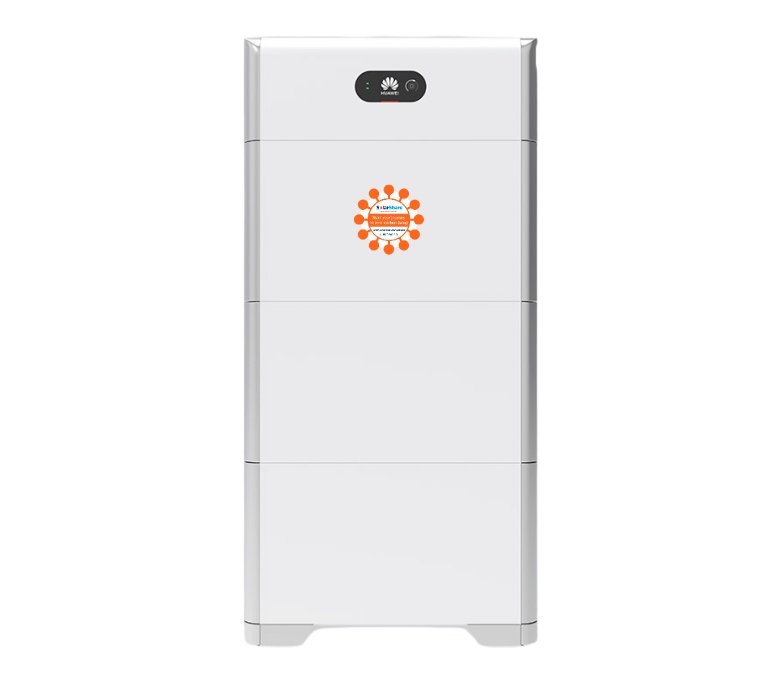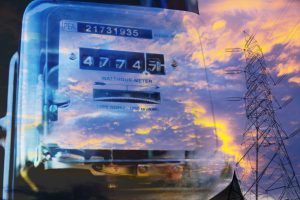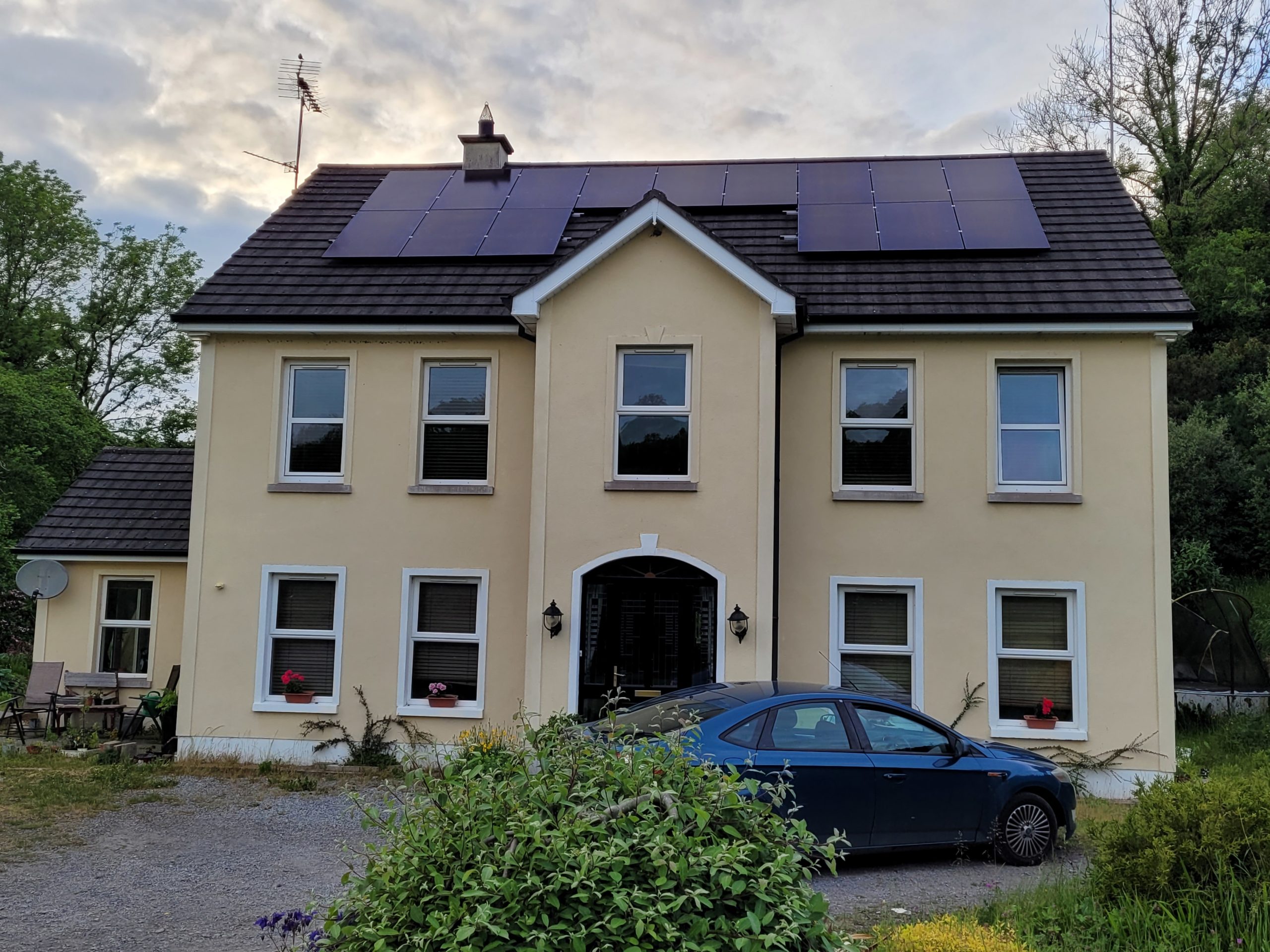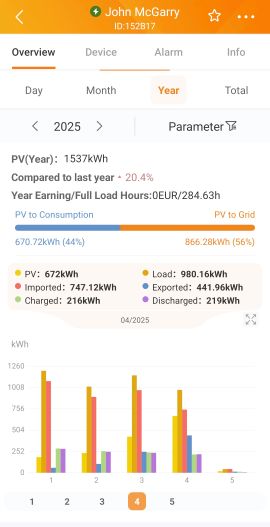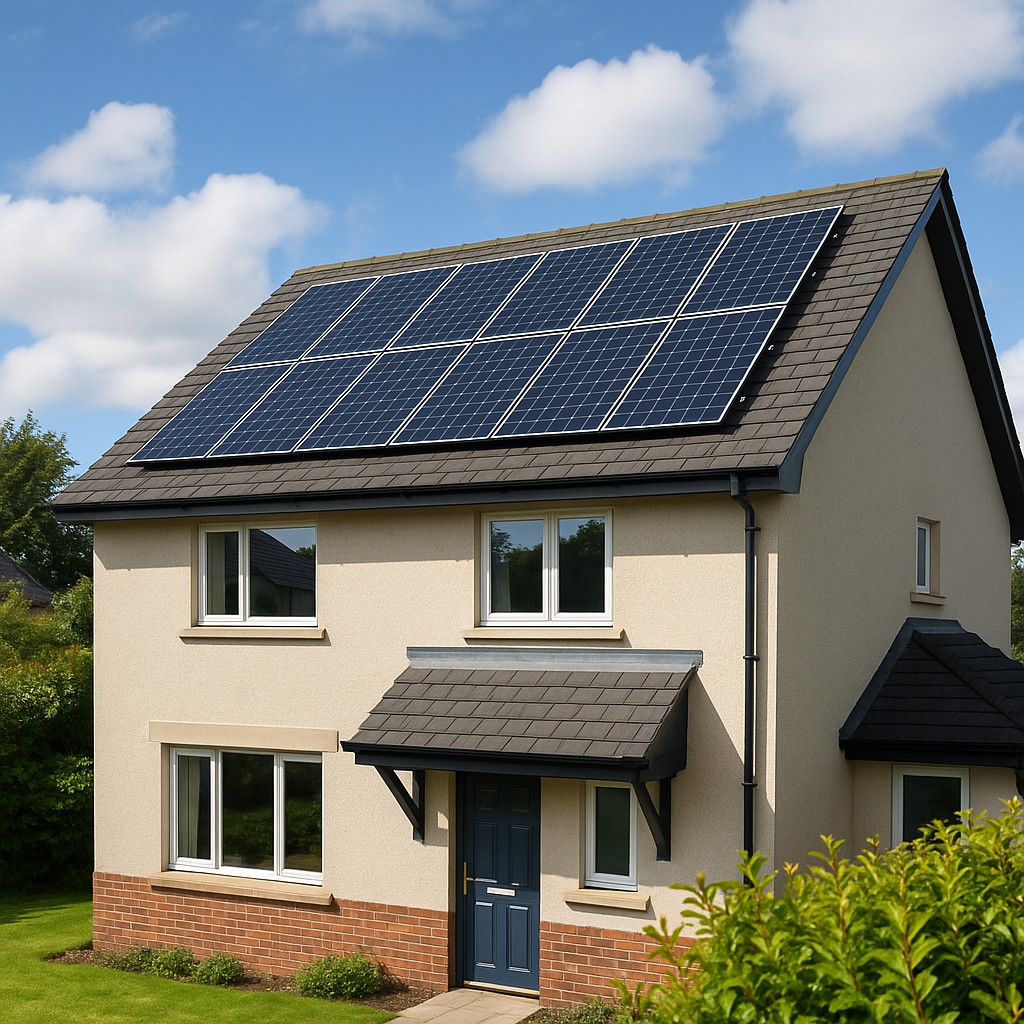First of all, it is important to say you do not need to have a battery with your solar panels . It will work perfectly well without them.
https://solarshare.ie/products/solar-panels-ireland/ If you do not have batteries as part of your solar panel system, you also can get away with a normal inverter and not a hybrid inverter that is required if you have batteries. If you do not know what an inverter is click here for an explanation.
If you do not have batteries as part of your solar panel system, you also can get away with a normal inverter and not a hybrid inverter that is required if you have batteries. If you do not know what an inverter is click here for an explanation.
Obviously, if you do not have a battery connected to your PV system, any power your panels generate that you do not use immediately in your home will go straight to the grid.
This is less of an issue since the Feed In Tariff was introduced in Ireland in February 2022. The Feed Tariff or FIT for short is what you get paid when you export unused energy to the grid.
Before February of 2022, you would have been doing all you can to use the power as you generate it so it would not go back to the grid. Before February 2022 you would not have got paid.
Now you will get paid anything between 10c and 20c from your energy for each kWh of power you export. How much you get depends on which energy provider you use.
From what you have read so far it sounds like you do not need a battery but read on before jumping to that conclusion.
While it is true you can sell your electricity back to your energy provider, they will never pay you nearly as much as they will charge you when you buy electricity from them. They will charge you more than twice what they pay you.
So, you could find yourself selling the electricity at 3 in the afternoon and getting 18c for it but later on in the day you will be buying back from them at over 40 c per kWh. Much better to have stored that excess power from 3 in the afternoon and used it later yourself.
It should also be noted that in other countries where a FIT was introduced a few years before Ireland, they are now reducing the price paid for electricity sold to them via the FIT system. This may or may not happen here, we just do not know but you would expect if the market dynamics in Ireland develop in the same way it very well might come down after a few years.
During the winter clearly the sun does not shine as much as during the summer so your panels will not be as productive. During these leaner months you will find yourself buying much more power from the grid than in the summer.
If you have batteries and have a tariff plan that gives you cheaper power during the night, then you can charge up your batteries with the cheaper night time power and then use it during the day.
Often power rates at night can be 1/3 or a ¼ cheaper than daytime rates. This is called grid shifting.
Even during the summer I personally charge up my batteries as much as I can during the hours of 2am to 4 am, I pay about 12.28 cents per kWh for this. This often means I start the day with a full battery. If it is a sunny morning then I am exporting to the grid straigth away. Again not a problem as I am getting 21 cents a kWh for this and it only cost me 12.21 cents per kWh hour to fill the battery so I am still making a small profit.

In the image above of a very recent electicity bill you can see a couple of interesting lines. The first is the amount of energy bought between 2 am and 4 am. This is the cheapest power to be bought from my provider and so I use this to charge up my batteries.
The second highlighted line is the one relating to the power I have exported. You can see that 382 kWh of power was exported and I got paid 21 cents per kWh of power I exported. This gave me a healthy credit for my next bill.
Having my battery fully charged up at night on cheap power allowed me to export more during the day at a profit.
It also, in particular during the sunnier months greatly reduces the amount of the most expensive electicity I have to buy between the hours of 8am to 11pm
If your house suffers a power outage and you have a solar pv system installed with batteries, then maybe you can keep the lights on.
Your solar PV system will have a socket for a plug associated with it. You can run an extension cable from this to a socket board that can handle multiple plugs. From there just plug in your fridge, tv or lights.
This is a fairly low tech approach but will work well, the only issue you may have is if at the time of the power outage there was no power in the battery then you are out of luck. If you knew in advance the grid was going down you could have charged up the battery to be ready for the outage
You can take this approach a bit further, to ensure you have some power available if the lights go out. You can set up your battery to always be at a certain power level even if it has to get the power from the grid. This way when the lights go out you know you will have battery power to keep things going.
The next level up for this is to install a second fuse board in your home with only the essentials on it. You can have this connected to your battery system. If the power goes down, then the batteries kick in and power the second fuse board with your essential power using appliances on it.
Having this backup power available might be a lifesaver if you have a medical device in your home that uses electricity and needs to be available 24 hours a day.
Finally as smart meters roll out and become the norm we will see different tariffs for different parts of the day. You can already get really cheap tariffs between 3 and 5 in the morning if you are on a smart plan with some providers .
It is entirely possible, even likely that you will be charged more for using power at really busy times of the day, say between 4 and 7 in the afternoon. If this happens and you have a battery system installed, you can power it up from either sunlight or the grid earlier in the day at a cheaper rate and have it available during the 4 -7 period.
So do you need batteries, strictly speaking No but having batteries makes your PV system much more flexible. It can help ensure you maximise your use of the cheapest power and minimise the use of the more expensive power. In an outage it can help keep the lights on.
During our free Solar Survey we will go through the battery options with you in detail so you can make an informed decision on weather to include a battery in your solar pv setup or not.

